Southport Village Voices
An E-Magazine by & for the Residents of Southport
Number 61, March 2015
|
|
|
|
|
|
|
What's Worse Than A Long Hard Winter?
|
Living in the path of an active volcano, that's what.
During our annual visit to our family on the Big Island of Hawaii, we've become very aware of the vulnerability of people residing in the small town of Pahoa, on the eastern slopes of Mauna Loa. They exist in the shadow of Kilauea, the world's longest running active volcano, which has been spewing and oozing hot lava continuously for decades.
Having witnessed the total obliteration of other small towns in their neighborhood (Kapoho in 1960 and Kalapana in 1986), the residents of East Hawaii know that it could happen to them, too. But over decades, anxieties about the lava flowing down the mountain tend to ease. In June 2014, however, the flow changed direction and headed for the heart of Pahoa. Residents saw their future in jeopardy.
Before long, a cemetery was buried by a river of lava 15' - 20' high and about 100 yards wide. A home had been incinerated and the town land fill invaded. Then the flow swerved again, this time toward the town's shopping center; Pahoa's only supermarket and other businesses closed up shop and vacated. Schools were closed and kids transported to other schools. The town's new police and fire stations appear to be in the path of the oncoming lava.
Worst of all, the only highway from East Hawaii into Hilo will be blocked if the lava continues on it's current path. Thousands of people may lose access to the place where they work and shop. Some folks have packed up and moved; others wait anxiously to see what Mother Nature (the goddess Pele in this case) will do next.
What would you do if a lava flow side-swiped Southport and set a few condos on fire, forced the closure of Combs Elementary School, targeted the police station and Stop & Shop, threatened to blockade Route 28?
Volcanoes operate on a scale of millennia. Kilauea probably will be an active threat to human life for centuries or longer. Our long, hard winter will soon be over -- just a memory. It could be worse.
______________________________
WANTED:
Storytellers, Essayists, Interviewers, Poets, Etc.
Southport Village Voices welcomes writers. A monthly commitment is not necessary; an occasional contribution is appreciated. We're looking for residents who would enjoy doing an interview or a restaurant review, writing about a travel adventure, telling a story or writing an essay, poem or memoir. Let your imagination be your guide. If you want to contribute but  prefer not to write, let me know and I'll arrange for someone to talk with you and do the writing.
David Kapp,editor
|
|
 |
|
|
SOUTHPORT PROFILE
Jim Rego: Rocket Man
an interview with Art Wagman
|
The February issue of
Southport Village Voices featured the career of
Suzi Rego. In this issue, we pick up the story with a focus on Jim Rego.
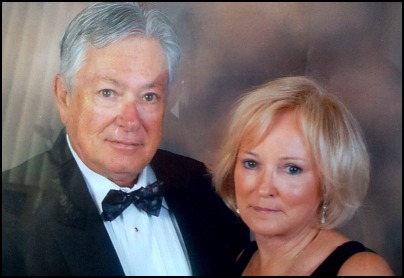 | |
Jim & Suzi Rego
|
Jim Rego was born in Pineville, Kentucky, the son of a career Air Force officer attached to the Strategic Air Command. As a boy, he moved with his family, never living in any one place too long. He followed his father's path into the Air Force as an enlisted man in the Tactical Air Command, ending up in Systems Command. "I went through two marriages before finding the love of my life," he says, looking at Suzi, whom he met in 1992 while singing together in a Washington DC piano bar.
Jim was a pre-med student at the University of Kentucky in 1964 when he was drafted despite being married and a father. He immediately joined the Air Force, having passed his qualifications exams, and he chose electronics as his specialty and served a tour in Southeast Asia during the Viet Nam conflict as an electronic missile guidance and control specialist. His squadron was known as the 'MIG Killers.'
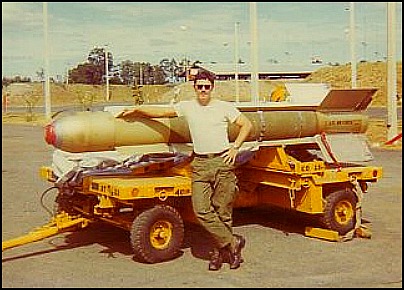 | |
Jim posing with an electro optical guided bomb in Viet Nam
|
After Jim left the Air Force, he enrolled at Arizona State University, graduating in 1977 with a major in accounting. Eventually he returned to Kentucky for a job as assistant director of a company that provided programs for developmentally disabled adults. It was a residential campus where he was responsible for fiscal and operational activities and taught courses in fiscal management. "I was on call 24/7 and was the 'go-to' guy if there were problems," he says. While talking to a friend about his frustrations with the job, the friend suggested that Jim should go back to the Air Force. "I blew it off, saying I was too old and they were not likely to want me back." But he called the Air Force and not only did they want him back, they also gave him credit for his four years of enlisted time. "So, in my 30's," he says, "I reported for duty at the Officer's Candidate School at Lackland Air Force Base in San Antonio, Texas and soon found myself the oldest second lieutenant in the Air Force."
Upon graduation, Jim was assigned to the Space and Missile Center in Los Angeles and to his first project -- the Defense Meteorological Satellite program. A close friend advised him, "If you want to succeed in a military acquisition career, find something that nobody knows anything about and become an expert at it." "So I went to staff school to learn about a new hot button management concept called, Earned Value Management (EVM)," he says. "Nobody understood it and I seemed to be the only one knowledgeable about it. I rode that wave all the way up to the rank of Lt. Colonel and ended up teaching the concept at the Defense System Management College.
"My career was basically spent going back and forth from LA to Washington DC, where I would kiss a ring, get my budget and go back to LA with another project. My last project before I retired was the Titan IV heavy lift booster program -- a response to the Challenger shuttle disaster in 1985.
 | |
The Titan IV rocket, built by Lockheed Martin Space Systems, was the largest unmanned space booster used by the US Air Force. It was retired in 2005 due to its high cost of operation.
|
"We were in a meeting with a lot of generals talking about heavy lift capability on the shuttle and, in the middle of the meeting, we looked at our TV monitors and the Challenger was falling out of the sky. The need for a new heavy lift vehicle became obvious. The Titan was an older rocket that had been mothballed; its refurbishing and resurrection started out as a $500,000 study by Lockheed and ultimately grew to a budget of over $22 billion dollars." But by restructuring the program and renegotiating contracts, Jim and his team saved several billion dollars in taxpayer funds.
The Titan program eventually ended and the US currently has no program to build and support heavy lift rockets. Most of that work is parceled out to private firms, particularly to Russia, whose rockets are basically rented by the US for tasks like supply missions to the International Space Station and for putting heavy satellites into orbit. Several US defense contractors are jointly developing a heavy lift rocket program as a private venture and plan to sell space for government and commercial ventures.
"When I retired from the military," Jim says, "the job I enjoyed most was teaching and developing curriculum at the Defense Acquisitions University in San Diego. Just as the Air Force used simulators to train pilots, I believed that it should have something similar to train personnel who manage millions of dollars in projects, I took the EVM concept and developed a classroom simulator, which was well received. Also, I got my MBA in finance from the National University of San Diego while stationed in Los Angeles. As it turns out, I took up accounting as a second choice and it became the keystone of my professional career."
Jim and Suzi had been living on the West Coast since 1994 and Suzi, with children and grandchildren in the Boston area, wanted to move back east. Her son Chris mentioned Southport to her and she checked it out. "It was so beautiful when you drove through the gate, there were all these trees. It was lovely," she says. "Little did I think after we bought here that all the trees would be replaced by rows of condos." Jim never visited and they basically bought it online.
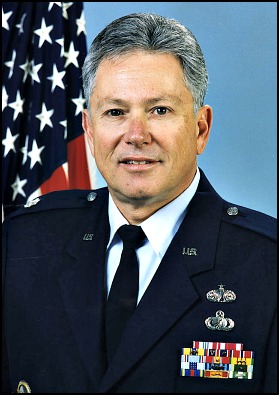 | |
Lt. Col. James Rego
|
In 2007 Jim started getting bad lab results on his kidneys and was diagnosed with polycystic kidney disease. He was in the hospital a lot and they thought that medical care would be better in the Boston area. The test results got progressively worse and in 2009 they contacted Mass General and Jim went into their kidney transplant program. He goes to dialysis for four hours three times a week and has added his name to the kidney transplant list in Vermont as well in Massachusetts. He's gone through five donors so far, all of whom have failed for one reason or another. So he is still waiting.
Jim loves golf and plays when his health and the weather permit. Suzi, too, is a competitive golfer and an active member of the Mashpee Women's Club, currently helping to plan a black tie gala to be held this September to benefit the Alzheimer's Society. They are a delightful couple, great neighbors and a wonderful addition to the Southport community.
If you know or hear of anyone who might be interested in donating a kidney, please contact Jim or Suzi at 508-477-9496. You can find more information on the kidney organ donor program at the Mass General Hospital website.
|
|
POETRY
Smudged Essence
by Lydia Biersteker
| 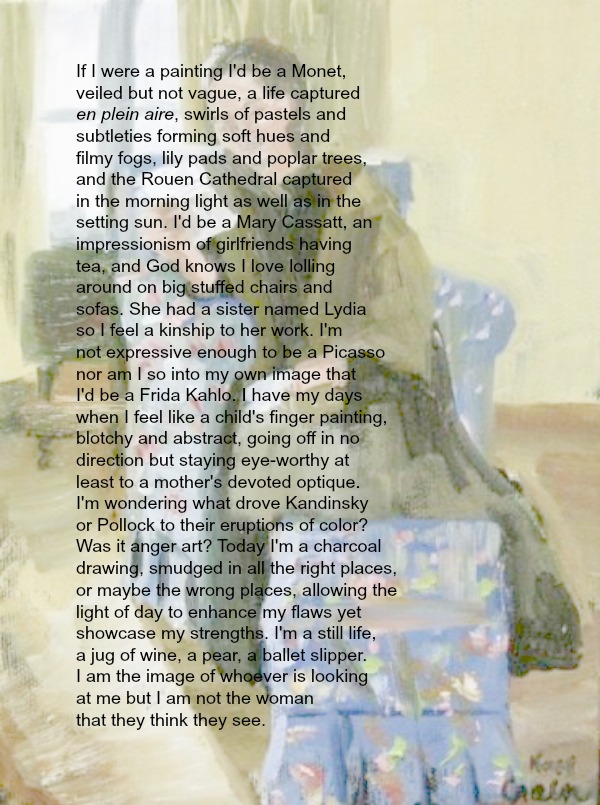
|
|
New In The Neighborhood
snapshot interviews and photos by Andy Jablon
|
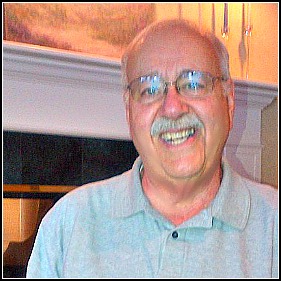
Gil Maffeo
22 Southport Drive. Moved in October 2014
Originally From: Pittsburgh, PA
Previous Residences:
Niantic and Simsbury, CT
Occupations: Retired from college professor and administrator; hospital administrator. Now a management consultant.
Why Southport? Daughter lives in Falmouth. Moved to Cape and Southport for the lifestyle.
Like Best: Lifestyle. Village Center is a magnet. Everyone is super friendly and helpful. Variety of people from all walks of life. Lots of diversity.
Like Least: No recycling. Would like to see more landscaping around the new homes.
Would Like to Get Involved With: Bocce, billiards and Southport budgeting process
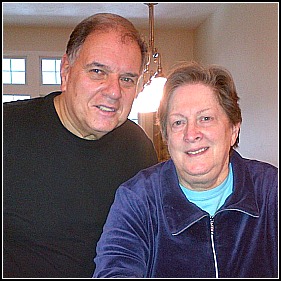
Judy & Bruce Heller
20 Southport Drive. Moved in October 2014
Originally From: Judy -- Brookline, MA
Bruce -- Cambridge, MA
Previous Residences:
Stoughton and Sharon, MA
Occupation: They work together in the gift industry and own a sales rep agency.
Why Southport? Judy -- Having worked all over the Cape in my business, I've watched Southport grow the past 15 years. When I was ready to move to the Cape, Southport was appealing and affordable. Bruce -- I fell in love with it the first time I saw it.
Like Best: Judy -- Can walk to Village Center. Bruce -- Incredibly friendly atmosphere. Village Center.
Like Least: No recycling. Village Center could be visually updated.
Would Like to Get Involved With: Judy -- golf, gym, swimming, mah jong.
Bruce -- golf, woodworking, social activities.
|
|
TRUE STORY
The Pocket Not Picked
by Carl Zuanelli
|
I was walking to my office in lower Manhattan, from the Wall Street and Broadway Lexington Ave Line subway station, one raw fall morning and felt an unaccustomed weight in my raincoat pocket. I put my right hand into my coat pocket and felt what seemed like my wallet. This was unusual as I never placed my wallet there. I then put my left hand into the right breast pocket of my suit coat and felt the shape of another wallet. I removed that wallet and stared at it. I reached into my raincoat pocket and removed another wallet and was confronted with the possession of two wallets, one in each hand. One mine. One not.
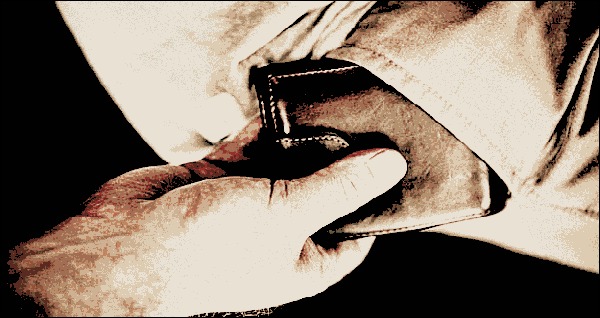
I was puzzled for a moment until I thought that I must be wearing another man's raincoat. When I boarded the train that morning for my commute into the city, I had removed my raincoat and placed it on the rack above my seat. As the train pulled into Grand Central Station, I arose and pulled my coat from the rack and put it on. Had I taken another man's coat from the rack, I wondered? I immediately hoped he wasn't tall, as I am about as tall as Bonaparte. I opened my coat, looked at the label and there it was: size 38 short. It was my coat all right. What's going on here? How did someone else's wallet get into my coat pocket?
My next thought was to notify a policeman. No -- he might think I was a thief. Why would he believe I found someone else's wallet in my coat pocket? I quickly replaced the wallet in my coat pocket, looked about to be certain I was not being observed and quick-walked the rest of the way to my office. I hung my coat up, sat down and started to examine the wallet's contents. There was a check for over $500, about $15 in cash, and IDs identifying the owner as Miguel Rodriquez. His office and residence phone numbers were there, as was his American Express credit card. I picked up my phone and dialed his office number. I asked the man who answered if his name was Miguel Rodriguez. He said he was. I told him that he was not going to believe what I was about to tell him.
I told him I found his wallet in my pocket. He wasn't surprised at all and responded by saying, "Oh, so that's what happened!" He said he was just about to cancel his credit card. He then went on to explain that while on the subway that morning, the train had lurched around a curve; a man standing in the aisle behind him leaned heavily onto him, pushing him into the window. He felt a hand on his hip pocket and suspected his pocket had been picked. He quickly looked behind him, and the pickpocket realized he had been observed. Then Mr. Rodriguez moved toward the doorway and when the train stopped at the Fulton Street station he exited, looking for a policeman.
I recalled that on my way south in the subway that morning, the platform was not crowded as the train entered the station and as I boarded. I had walked to the center of the car and a man had followed and stood behind me. I thought it odd, as there was no one else there and he had the entire car to find a place to stand. At the next stop, people entered, filling up the car. The train was moving again and shortly thereafter it lurched around a curve and I lurched with it. So did that man, pushing up against me. After the train stopped at the next station, I moved toward the doorway and away from the man, who was crowding me unnecessarily.
Finally, the train entered the Wall Street stop and I disembarked to find the same man exiting alongside me. I walked up the stairs, as did he. I waited for the light, as did he beside me. I crossed the street, as did he beside me. I quickly moved along putting distance between him and me. Then I felt the weight of a wallet in my pocket.
He had indeed picked Mr. Rodriguez's pocket. We surmised that he had put the wallet into my pocket after being discovered by Mr. Rodriguez and a policeman called to the scene. Further, he walked beside me for some time, hoping to retrieve the wallet, but stopped when I felt it in my pocket and he saw me take it out. The jig was up!
I gave Mr. Rodriguez his property. He thanked me for my trouble and left my office. However, I wondered if I might find the pickpocket waiting for me when I exited my building to go home that night. As I walked to the Wall Street Station, I periodically looked around to see if that man was following me. He wasn't. I boarded the train for my ride home with my wallet and contents secure, my pocket not picked, rewarding myself with a grin for always removing my wallet from my hip pocket and placing it in my suit coat breast pocket before boarding the Lexington Avenue Subway.
|
POETRY
Winter in Massachusetts
| |
Courtesy of Maureen Rounds & Odin Tidemand
|
|
Non Compos Mendes
by Bob Mendes
| |
- You've probably had this experience at one time or another. I recently noticed a book that I was sure I had read, picked it up and started leafing through it and found I had not read it. What a terrific experience! It was Stephen Ambrose's Citizen Soldiers and I'd recommend it to anyone.
- Standing on the corner of Leisure Green and Pebble Beach Drive, I can practically see 2016 -- and It's not pretty. I can see one candidate after another, telling us why he/she deserves our vote, the glut of TV commercials, flyers in our mail, lawn signs, meaningless debates and buckets full of phony sincerity. Ah, Democracy.
- You heard it here first: When I read that the Pawtucket Red Sox affiliate is moving to Providence, my first thought was that the nickname Paw Sox would go by the board -- too bad. But the team is staying in Rhode Island! New nickname: The Rhode Sox.
- I knew it! I knew if I waited long enough I'd see corned beef and pastrami declared health foods. An article in the February 19 Cape Cod Times announced that the harmful effects of cholesterol were being examined and that new standards were being set, lowering the risk factor of cholesterol. That, my friends, is good enough for me.
- Reading recent headlines about what's going on in the Middle East is like seeing the Crusades play back in reverse.
- In a recent Cape Cod Times article announcing that the 2016 Democratic Convention would be held in Philadelphia, Florida Congresswoman Debbie Wasserman Schultz is quoted as follows: "There is clearly no better city to have this special event than Philadelphia. The role of Philadelphia in shaping our nation's history is unmatched." Uhhh, Debbie, have you ever heard of Boston?
- It was at least a year ago when the Times replaced Blondie with a new comic strip called Pickles. I was outraged and wrote a nasty letter to the editor. Blondie was a classic, I said, how could you....? Etc. etc. Now, however, I rate Pickles tops. It's the perfect blend of humor, exaggeration and truth -- especially if you're a grandparent.
- I've tried to watch some of the new "comedy shows" on television and have reached the following conclusion: If you can't be funny, crank up the laugh track.
- One good aspect of the past month is that it's not been boring. I've enjoyed waking up each morning, going to the bedroom window, and opening the blinds to see what Storm Team 5 has brought us.
- Admit it. Don't you sometimes wish you could fly?
- We all know that our snow removal budget has been fractured this year, but here's something else to think about. Look out your window at your shrubs. How many of them are broken and bent out of shape by the weight of the snow? Now think about all the Nantucket models that have suffered ice dam problems. I guess my point is, don't plan on getting out of this winter with only a snow removal overrun in the budget. We have some major problems to contend with.
- The subject was TV commercials. Recently my friend Mike Cowley and I were talking about television commercials and how entertaining they are. That's too bad. Their job is not to entertain, but rather to sell product -- which they are not doing. We both noticed that in many commercial we couldn't even tell what product was being advertised. Considering that some of these 30-second spots cost the advertiser upwards of $7500, that's money wasted.
|
|
Bowling at the Lanes
Photos by Larry Cron
| |
|
|
Contributors to the
March 2015 Edition
Southport Village Voices
|
 Lydia Biersteker grew up in Somerville, Massachusetts. She met her husband Dale on the beach at Falmouth Heights in 1969, while he was stationed at Fort Devens. After Dale retired in 2005 from his executive position with the USPS, they moved to Vero Beach, Florida but decided that they preferred New England. They moved to Southport in 2011. Dale plays golf, and Lydia likes gardening, walking, writing poetry and short prose, exploring genealogy, and lunching with friends. Together, they enjoy dining, exploring wineries and brew pubs, walking, traveling and playing with their grandkids. Lydia Biersteker grew up in Somerville, Massachusetts. She met her husband Dale on the beach at Falmouth Heights in 1969, while he was stationed at Fort Devens. After Dale retired in 2005 from his executive position with the USPS, they moved to Vero Beach, Florida but decided that they preferred New England. They moved to Southport in 2011. Dale plays golf, and Lydia likes gardening, walking, writing poetry and short prose, exploring genealogy, and lunching with friends. Together, they enjoy dining, exploring wineries and brew pubs, walking, traveling and playing with their grandkids.
 Andy Jablon Andy Jablon owns a television production company in Watertown that provides crews to shoot stories in New England for the major TV networks. As producer, he interviews all sorts of interesting people on a regular basis. His wife Tracy Tebbutt works at a cancer pharmaceutical company in Cambridge. Since July 2014, they split their time between Southport and Boston, depending on work schedules. Both are enthusiastic cyclists, riding their bikes along the Charles River to work in almost all kinds of weather. They relax by walking, biking, playing tennis and soaking in the hot tub.

David Kapp, with his wife Billie, moved from Connecticut to Southport in 2009. David retired from a career as a university library administrator, after working in the libraries at Brandeis, Harvard and the University of Connecticut. He was a building consultant for the planning of a number of major university libraries and was, for many years, the editor of Connecticut Libraries. Billie enjoyed a career as an educator and social sciences consultant. The Kapps are frequent visitors to Hawaii where their daughter, son, grandson and many other family members live.

Bob Mendes began his career as an advertising copywriter at Doyle Dane Bernbach in New York before becoming senior vice president of marketing for a west coast department store chain. He left that position to start Pacific Sports, a sports and general marketing agency. There he developed "The Reading Team," a children's literacy program sponsored by the National Football League and the American Library Association, which used NFL players as literacy role models. Bob is the author of "A Twentieth Century Odyssey, the Bob Mathias Story." After retiring, he served as executive director of the Glendora, CA Chamber of Commerce. When grandson Adam was born, Bob and Bette moved to Cape Cod, where they recently celebrated their 45th wedding anniversary. Neither retires well. He's had a number of part-time jobs, has written two more books, and volunteers. Bette serves on committees at Southport and at the Falmouth Jewish Congregation. Their son Steve is a pediatrician and lives in Marion with his wife Sarah and their children, and a second son, Jeff, practices law in Indianapolis.

Arthur Wagman and his wife Bobby moved to Southport in 2002. After graduating from Boston University, Arthur was commissioned into the US Air Force. He and Bobby were stationed in France, where their first child was born. Leaving the Air Force as a Captain, he returned to BU, earned his doctorate and began a lifelong career in education. Arthur was assistant superintendent for finance for Wayland, MA Public School, leaving to become the bursar at the Massachusetts Institute of Technology. After leaving MIT he returned to public education and served as superintendent of Dedham, MA Public Schools. Arthur started and is president of Educational Resources Management, a consulting company working with school boards and architects to develop educational specifications for new schools. He and Bobby have three children and five grandchildren.
 Carl Zuanelli graduated from SUNY/Maritime College at Throgs Neck, NY, received his Third Mate's License from the US Coast Guard and was commissioned as an ensign in the US Navy before embarking on a career in the Merchant Marine. Later, after earning his MBA at Iona College, he enjoyed a second career in corporate insurance - ocean, marine, commercial, casualty and domestic/international reinsurance. When his son wanted to begin a business of his own, Carl helped him out and joined the board of the fledgling Board of the Nuovo Pasta Company; pasta was a good investment. He served as a trustee of the Westchester Artificial Kidney Foundation for 30 years and on the Wilton (CT) Board of Finance for five. A widower, he retired in 1996 and in 2003 moved to Southport to be with his new wife Leslie. He is the father of two sons and two daughters. Carl Zuanelli graduated from SUNY/Maritime College at Throgs Neck, NY, received his Third Mate's License from the US Coast Guard and was commissioned as an ensign in the US Navy before embarking on a career in the Merchant Marine. Later, after earning his MBA at Iona College, he enjoyed a second career in corporate insurance - ocean, marine, commercial, casualty and domestic/international reinsurance. When his son wanted to begin a business of his own, Carl helped him out and joined the board of the fledgling Board of the Nuovo Pasta Company; pasta was a good investment. He served as a trustee of the Westchester Artificial Kidney Foundation for 30 years and on the Wilton (CT) Board of Finance for five. A widower, he retired in 1996 and in 2003 moved to Southport to be with his new wife Leslie. He is the father of two sons and two daughters.
SPECIAL THANKS TO
Jim Rego for his interview and pictures,
to Gil Maffeo and Judy & Bruce Heller
for their interviews,
to Maureen Rounds & Odin Tidemand for
"A Winter Poem"
and to my proofreader Billie Kapp.
|
|
|
|
|
|
|
|